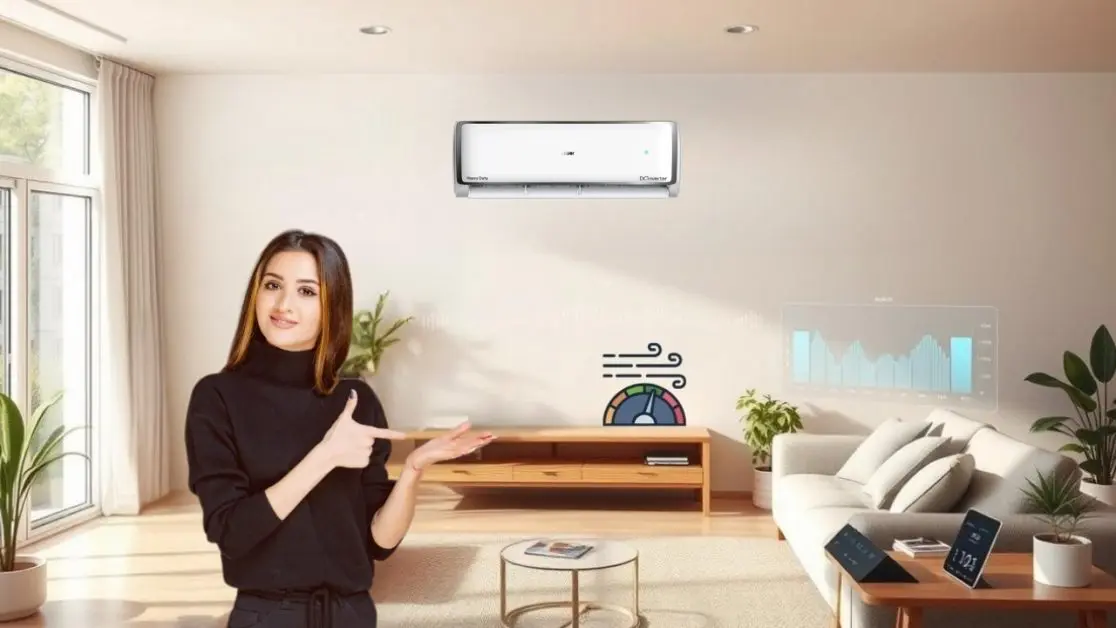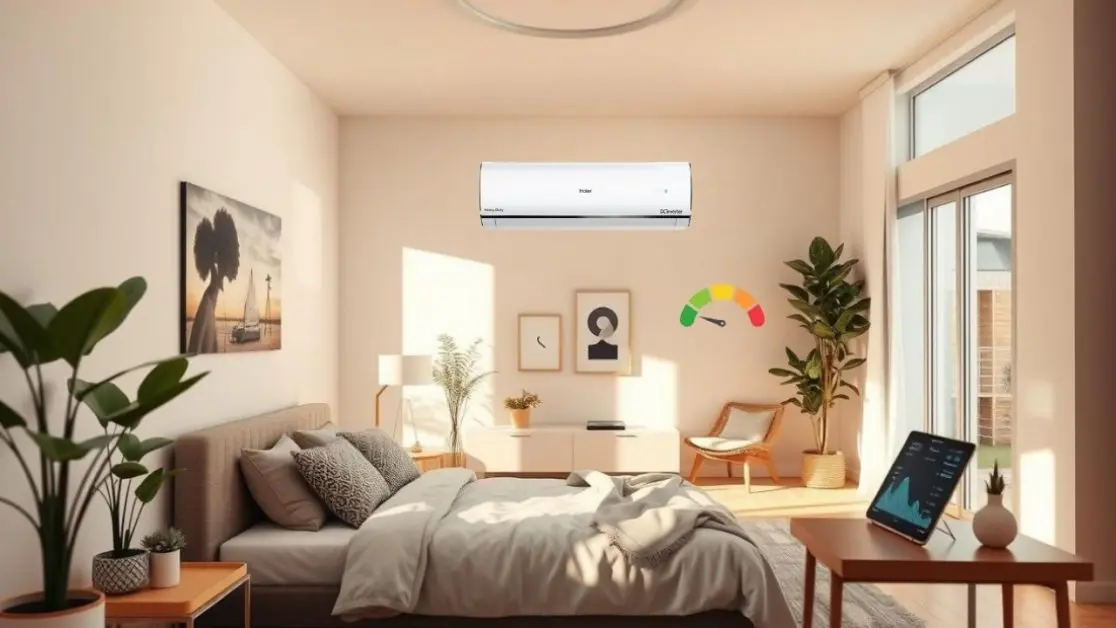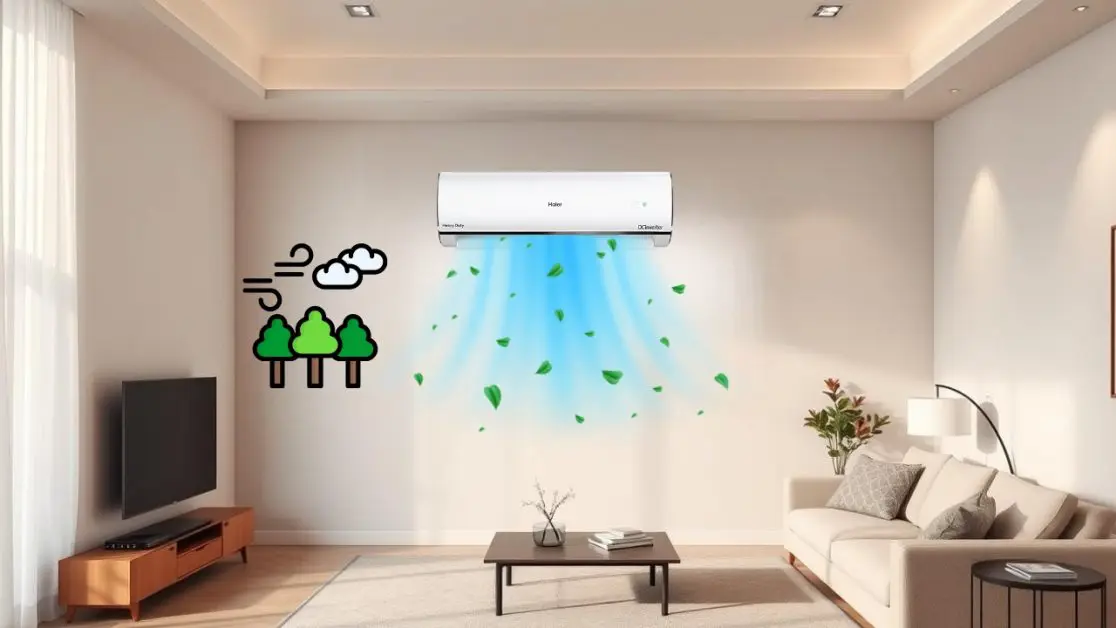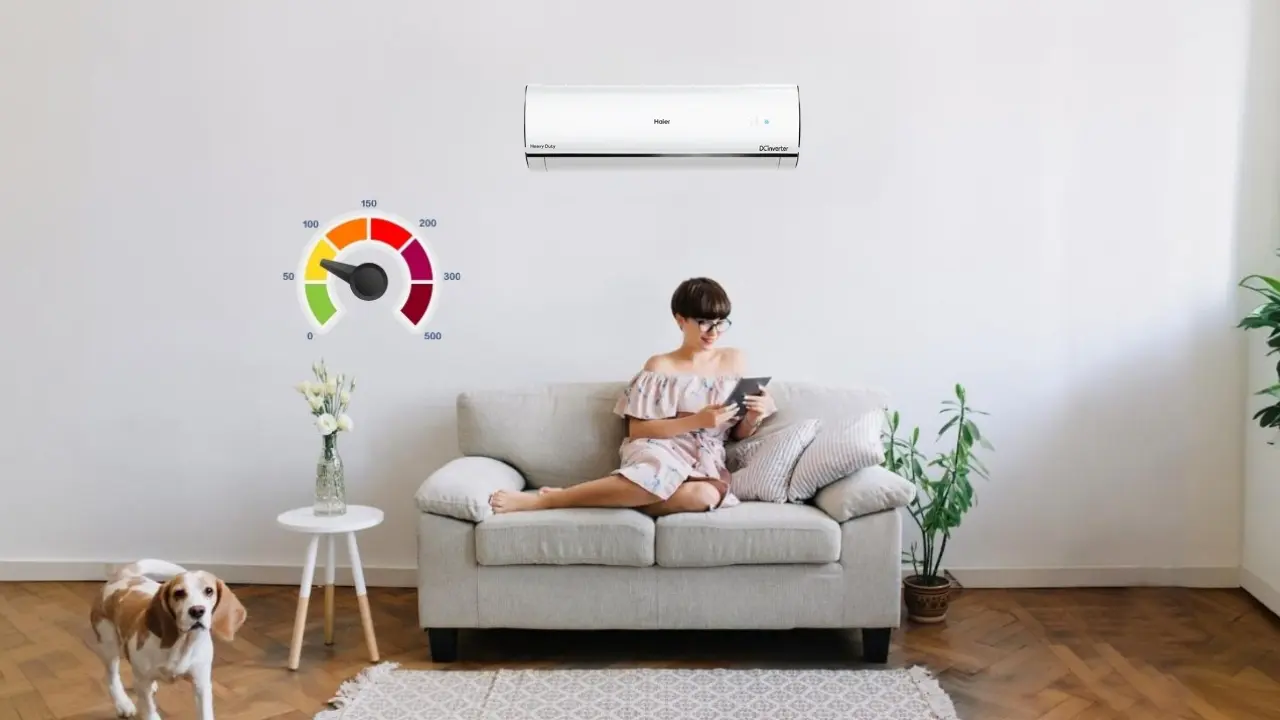Also referred to as ‘climate change,’ air pollution remains an ever-increasing problem globally, making advanced air quality monitoring and filtration a top priority. Smart air conditioners equipped with AI-enabled technology are changing the way one manages indoor air by enabling real-time monitoring, improved filtration, and optimized energy use.
Through the ‘smart’ integration of artificial intelligence (AI), these systems take the form of ACs that monitor pollutants and determine the level of purification necessary to sustain an ideal indoor environment, all with little or no human effort.
This article will analyze how an air conditioner equipped with artificial intelligence upgrades air quality monitoring and filtration, the technologies used to achieve these objectives, the benefits of using AI technology, and most importantly, their capabilities in transforming indoor air quality management.
The Role of AI in Air Quality Monitoring

An AI air conditioner is equipped with advanced sensors integrated with machine learning algorithms that continuously monitor indoor air quality in real-time. Such systems detect multiple air pollutants, including dust, pollen, volatile organic compounds (VOCs), and harmful gases such as carbon monoxide (CO) and nitrogen dioxide (NO2).
1. Collection and Examination of Data in Real Time
The majority of traditional AC systems lack air quality monitoring functions. However, IoT sensors enable real-time data collection in AI-enabled ACs. These sensors send data to AI algorithms, which analyze the information and identify pollution trends for potential air quality issues.
2. Smart Detection of Pollutants
AI-powered systems equipped with advanced machine learning can identify pollutants and allergens individually. Using deep learning models, they can detect bacteria, viruses, mold spores, and highly fine particulate matter (PM2.5 and PM10) in the air.
3. Predictive Management of Air Quality
AI algorithms study historical data to estimate when air quality is most likely to deteriorate. This enables proactive action by enhancing the AC’s air purifying properties. For example, if pollution levels rise due to outdoor conditions or an increase in the number of people in the building, the AC system will automatically adjust filtration and ventilation settings.
AI Enhancements in AC System Filtration Technologies
AI significantly improves modern ACs equipped with high-efficiency air filtration systems aimed at reducing airborne contaminants. These systems dynamically respond to changing air quality conditions, making them more adaptive and efficient.
1. Smart Air Filter Maintenance
AI-enabled AC units are equipped with an array of filters, including HEPA filters, activated carbon filters, and electrostatic precipitators. AI technology tracks filter usage and prompts necessary servicing, ensuring optimal performance.
2. Advanced AI Filtration System
Unlike conventional air conditioning systems that operate at a static filtration level, AI systems effortlessly adjust their filtration intensity. This conserves energy while ensuring consistently purified air.
3. Improvement of Sterilization Process Using AI
AI-controlled air conditioning machines equipped with ultraviolet (UV) lights can effectively eliminate disease-causing microorganisms. AI technology determines the appropriate power usage and duration for UV exposure based on microbial presence at a given time.
Air Cleansing with AI Control and Energy Optimization

A major challenge in air conditioning is improving air quality while minimizing energy consumption. AI has significantly enhanced efficiency by reducing energy expenditure while ensuring superior air purification.
1. Optimized Control of Ventilation
AI-driven AC units analyze outdoor air conditions and determine whether fresh air can be introduced without compromising indoor air quality. This approach not only improves air quality but also leads to substantial energy savings.
2. AI-Driven Demand-Controlled Ventilation (DCV)
With AI-powered DCV, air-conditioning systems optimize ventilation rates based on real-time occupancy levels and indoor air quality. This results in significant energy savings without sacrificing air cleanliness.
3. Learning Algorithms for Energy Optimization
AI learns user behavioral patterns and environmental factors over time. Predictive models for cooling and air quality management help minimize energy consumption while maintaining a healthy and comfortable indoor climate.
The Benefits of AI-Enabled Air Conditioners for Health and Well-being

AI-driven AC systems contribute to health improvement beyond temperature control by enhancing indoor air quality.
1. Reduction of Allergens and Airborne Diseases
Through continuous monitoring and filtration, AI-enabled ACs reduce pollen, pet dander, and dust mite allergens. They also minimize the spread of airborne diseases by effectively eliminating bacteria and viruses.
2. Improved Respiratory Health
AI-driven air purification significantly enhances indoor air quality, benefiting individuals with respiratory conditions such as asthma or chronic obstructive pulmonary disease (COPD).
3. Tailored Air Quality Preferences
AI systems allow users to customize air purification settings to meet specific health needs. For instance, individuals with allergies can prioritize allergen filtration for enhanced protection.
The Future of AI in Air Quality Monitoring and Filtration
The integration of AI in air conditioning is paving the way for even more advanced air quality solutions. Future innovations are expected to offer:
1. Comprehensive Smart Home Ecosystems with AI
AI-powered air conditioners will seamlessly integrate with air purifiers, humidifiers, and intelligent windows, creating a holistic air quality management system for smart homes.
2. Tracking Air Quality with Blockchain Technology
AI-powered air conditioners will be able to store and provide verifiable air quality records through blockchain technology, ensuring transparency and accountability for indoor air quality.
3. Personalized Data-Controlled Climate Management
Advanced AI systems will leverage biometric identification, such as heart rate and respiratory patterns, to tailor air quality and temperature settings to an individual’s physical needs.
At the end!
Thanks to AI-driven technology, modern air conditioners now come with smart air quality control and advanced filtration systems, making indoor spaces healthier and more energy-efficient. These intelligent systems automatically detect pollutants, adjust settings, and ensure cleaner, fresher air while optimizing energy use.
As AI continues to advance, air conditioners are becoming more than just appliances; they’re transforming into essential tools for healthier living. They not only keep you comfortable but also contribute to overall well-being by reducing allergens, pollutants, and even harmful microbes.
The shift toward AI-powered air quality monitoring isn’t just a trend, it’s a step toward a smarter, more sustainable future. With these innovations, modern indoor environments will be safer, cleaner, and more eco-friendly than ever before. The future of air conditioning is smarter, and it’s here now!
Haier India brings innovation and convenience to your home with cutting-edge appliances designed for modern lifestyles. From air conditioners and smart refrigerators to advanced kitchen solutions, Haier delivers efficiency, durability, and style.
Upgrade your home with Haier’s technology-driven appliances for a smarter, healthier, and more comfortable living experience!

